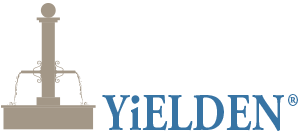Retail investors must carefully consider the various fees associated with structured products, including issuance, distribution, trading, and currency conversion fees.
To determine if an investment is worth it, investors should weigh these costs against potential returns and consider factors such as risk tolerance, investment objectives, and available alternatives.

Structured product fees for retail investors include issuance, distribution, trading, and currency conversion fees. Assessing whether these investments are worth it requires analyzing the fee structure, comparing potential benefits, and considering alternative options with lower costs.
Structured product fees for retail investors include issuance, distribution, trading, and currency conversion fees. Assessing whether these investments are worth it requires analyzing the fee structure, comparing potential benefits, and considering alternative options with lower costs.
Is It Worth It? This is the crucial question to consider.
Determining whether investing in a structured product is worth it depends on several factors, including the investor’s risk tolerance, investment objectives, and the product’s potential returns relative to its fees. Investors should carefully analyze the fee structure and weigh the costs against the potential benefits, taking into account factors such as:
- The product’s expected return and risk profile
- The investor’s investment horizon and liquidity needs
- The availability of alternative investment options with similar risk-return profiles and lower fees.
Issuance Fees.
Issuance fees are charged by the product issuer and cover the costs of creating and structuring the product.
These fees are typically embedded in the product’s price, which means investors may not see them listed as a separate charge. The issuance fee can range between 0.5% and 2% of the invested amount, depending on the complexity of the product and the issuer.
Example: For an investment of 2,000 CHF, the issuance fee might range from 10 CHF (0.5%) to 40 CHF (2%). For an investment of 10,000 CHF, the issuance fee could range from 50 CHF (0.5%) to 200 CHF (2%).
Distribution Fees.
Distribution fees compensate the banks, brokers, or financial advisors who distribute the structured products to investors. These fees can also be embedded in the product’s price or charged as a separate commission. Distribution fees usually range between 1% and 3% of the invested amount.
Example: For an investment of 2,000 CHF, the distribution fee might range from 20 CHF (1%) to 60 CHF (3%). For an investment of 10,000 CHF, the distribution fee could range from 100 CHF (1%) to 300 CHF (3%).
Trading Fees.
If an investor decides to sell the structured product before its maturity, they may incur trading fees. These fees are usually charged by the bank or broker and can range from 0.1% to 1% of the transaction value.
Example: For a 2,000 CHF investment sold with a 0.5% trading fee, the investor would pay 10 CHF. For a 10,000 CHF investment sold with the same trading fee, the investor would pay 50 CHF.
Currency Conversion Fees.
Structured products may be denominated in a different currency than the investor’s base currency, such as USD or EUR. In this case, investors may need to pay currency conversion fees when buying or selling the product. These fees can range from 0.5% to 1% of the transaction value.
Example: For a 2,000 CHF investment with a 0.75% currency conversion fee, the investor would pay 15 CHF.
It is essential for investors considering structured products to carefully review the termsheet, FAQs & Glossarywhich outlines all the fees associated with the investment. This document will provide detailed information on issuance fees, distribution fees, management fees, trading fees, and currency conversion fees, allowing the investor to make an informed decision.
In addition to examining the termsheet, it’s crucial for investors to inquire about any charges that their traditional bank or online broker may impose when investing in structured products. These charges may include transaction fees, account maintenance fees, or other service fees, which could impact the overall cost of the investment.
By thoroughly reviewing both the termsheet and understanding any additional charges from their bank or broker, investors can gain a clear picture of the total fees associated with a structured product investment.
This information will help them assess whether the potential returns on the investment are worth the costs and make an informed decision about whether to proceed with the investment.
Get Started with YiELDEN




